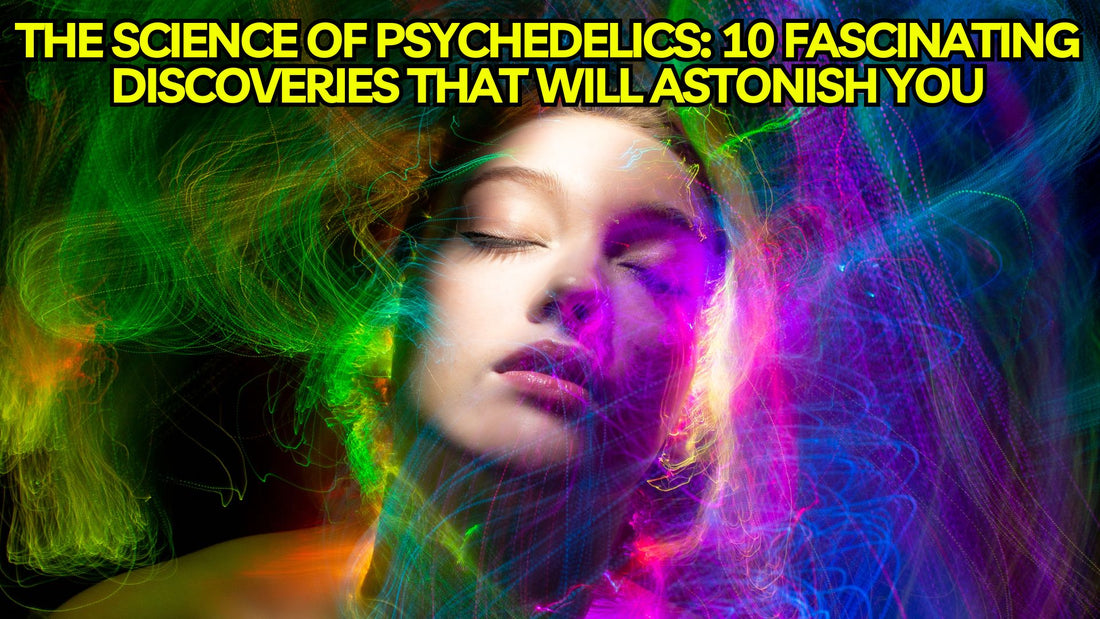
The Science of Psychedelics: 10 Fascinating Discoveries That Will Astonish You

The world of psychedelics has long been shrouded in mystery and intrigue, but recent scientific research has been unraveling the secrets hidden within these mind-altering substances. From the therapeutic potential of psychedelics to their profound effects on the brain, the discoveries made in this field are nothing short of astonishing. Join us on a journey through the science of psychedelics as we uncover 10 groundbreaking findings that will leave you both informed and amazed.
1. Psychedelics Can Create Profound Mystical Experiences
Recent studies have shown that psychedelics, such as psilocybin and LSD, can induce mystical experiences characterized by a sense of unity, transcendence, and ineffability. These experiences often have a lasting positive impact on a person's sense of well-being and spirituality.
2. Enhanced Brain Connectivity under Psychedelics
MRI scans have revealed that psychedelics can increase connectivity between different regions of the brain. This heightened connectivity is believed to play a role in the altered states of consciousness experienced during a trip.
3. Psychedelics May Help Treat Depression and Anxiety
Psychedelic-assisted therapy has shown remarkable potential in treating conditions like depression and anxiety. Substances like psilocybin are being studied for their ability to provide breakthroughs in traditional therapy sessions.
4. Microdosing: A Subtle Path to Increased Creativity
Microdosing psychedelics, where individuals take small, sub-perceptual amounts, has gained popularity as a method to enhance creativity and problem-solving. Research is ongoing to explore its potential benefits.
5. Neurogenesis: Psychedelics' Role in Brain Cell Regeneration
Some studies suggest that psychedelics may promote the growth of new brain cells, a process known as neurogenesis. This could have significant implications for cognitive health and emotional well-being.
6. Altered Perception of Time and Space
Experiments have shown that psychedelics can dramatically affect the perception of time and space. This intriguing phenomenon may provide insights into the brain's perception of reality.
7. MDMA-Assisted Therapy for PTSD
MDMA, often considered a psychedelic, is being researched for its use in treating post-traumatic stress disorder (PTSD). Initial studies have shown remarkable success in reducing PTSD symptoms.
8. Psychedelics and Ego Dissolution
The dissolution of the ego, or ego death, is a phenomenon often experienced during intense psychedelic trips. Scientific investigations into this process can shed light on our understanding of the self and consciousness.
9. Enhanced Emotional Empathy
Research has found that psychedelics can increase emotional empathy, making individuals more sensitive to the feelings and experiences of others. This has implications for improved interpersonal relationships and therapeutic applications.
10. The Potential for Addiction Treatment
Certain psychedelics, like ibogaine and ayahuasca, are being explored as tools for treating substance addiction. These substances may help individuals confront their addiction and initiate the recovery process.
As the scientific exploration of psychedelics continues, we're peeling back the layers of mystery to reveal an intriguing world of potential benefits and transformative experiences. The discoveries made in this field have the power to reshape our understanding of the human mind and provide innovative solutions for various mental health challenges. So, whether you're an enthusiast or simply curious, stay tuned for more astonishing revelations in the science of psychedelics.
